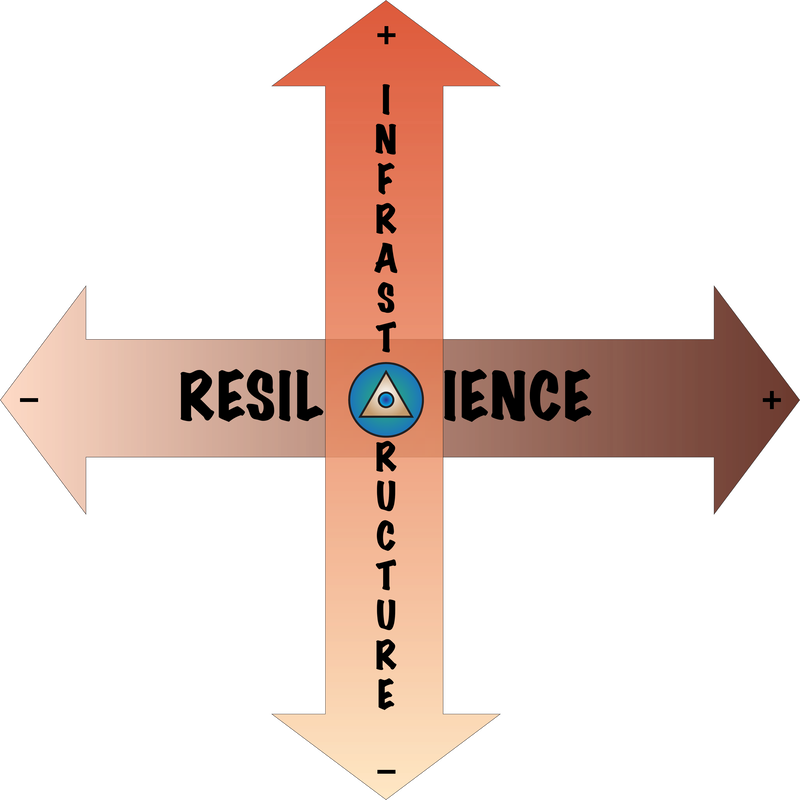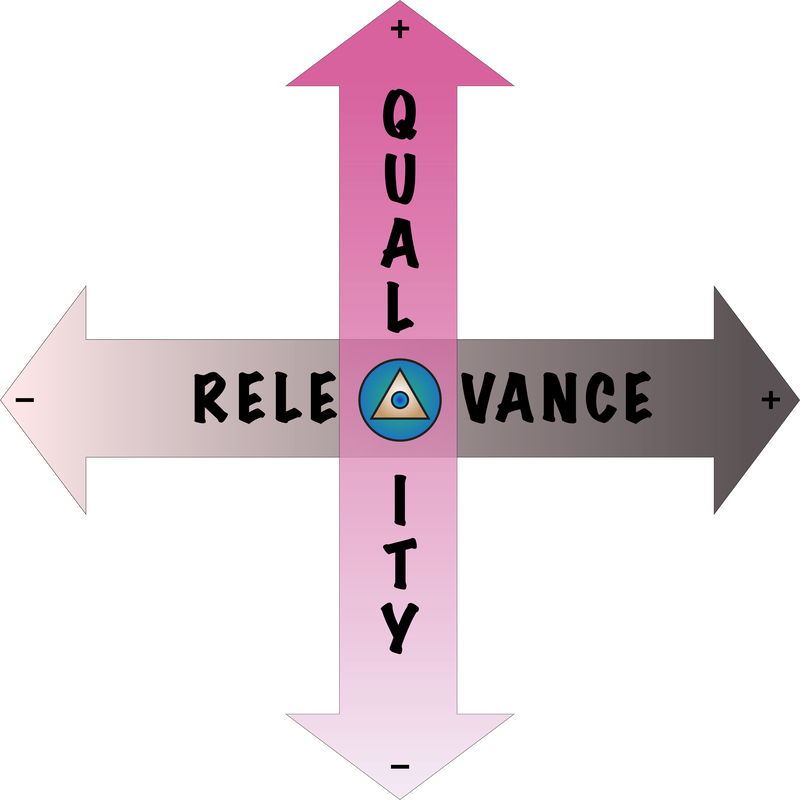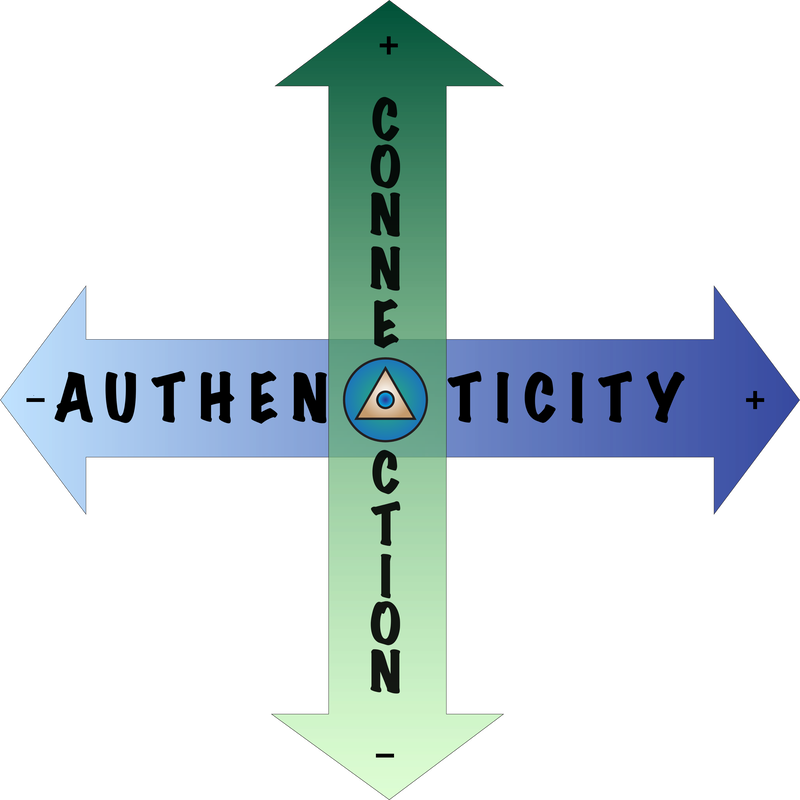Tools
Many tools can be employed to gain insight into, and manage, the best strategies to ensure a successful future for a spiritual organization. The Church 2.0 project will develop tools such as databases, research repositories, white papers, interactive apps, and surveys to assist spiritual organizations in assessing their potential for sustainable growth.
Surveys
The Church 2.0 project has developed two surveys to help spiritual organizations understand how they are doing and the efficacy of their viability planning. The "Religious/Spiritual Organization Sustainability Survey" and "Spiritual and Religious Values Survey" can be used together by a spiritual organization to measure its membership's opinions about how it is doing as compared to the impressions of its leadership. Either survey can be used separately.
Graphics from the "Strategies" tab of this website illustrate how to plot where an organization is located. Color gradiation ranges in the graphics from less (-) to more (+) in the three essential elements that ensure the continued viability of a spiritual organization. Obviously, any organization should strive to place itself in the top-right most corner of the quadrant. How an organization is placed in the three elements of sustainability, value, and meaning is important to understanding the work that needs to be done to achieve its highest potential.
The Religious/Spiritual Organization Sustainability Survey is intended for leadership and staff of spiritual organizations. Although this survey is not anonymous the results are held in the strictest confidence. An aggregate of opinions provided by the staff and leadership of a spiritual organization will be compiled and a report will be generated for a small donation. The report will be like the one below for the Spiritual and Religious Values Survey,
Spiritual and Religious Values Survey
|
The Spiritual and Religious Values Survey presents a glimpse into how people feel about spiritual matters. The report below is generated from anonymous online input and is updated automatically. The Church 2.0 project invites you to participate in this version of the survey, which measures spiritual views of many thousands of people worldwide. Click here to take the survey.
When a survey like this used along with the Religious/Spiritual Organization Sustainability Survey it can measure opinions about the membership of a particular spiritual organization.
When a survey like this used along with the Religious/Spiritual Organization Sustainability Survey it can measure opinions about the membership of a particular spiritual organization.
This survey is, by no means, a rigorous sampling of opinions. In fact, it is the result of an invitation by the author on his Facebook account for people to participate. The survey report above will become more accurate as more people accept the invitation to contribute. That said, the survey indicates several fascinating points that validate our findings:
This survey also bears out what much research is showing about how much change has occurred regarding spiritual and religious views in what has been a relatively short period of time. According to a Pew Research Center survey conducted between April 25 and June 4 of 2017, 27% of adults in the United States describe themselves as spiritual but not religious. That is an increase of 8 percentage points in five years. People who identify themselves this way cover a broad spectrum of citizens of all races, genders, ages, educational levels, and political persuasion. Interestingly, a corresponding drop occurs among those who identify as both religious and spiritual; 11 percentage points from 59% to 48%. Although down from levels in the past, 79% of Americans say they believe in God (or a “Universal Spirit”), and 10% say they are “not sure”. The conclusion by Gallup news is that most Americans believe in God.
- we are in an environment where religious life had been waning for some time
- the number of "nones" who do not recognize any spiritual or religious affiliation is growing very fast, and significantly
- churches have lost their preeminent place as guides for moral and spiritual living
- even if we get back to what some call a “normal way of life” the continual threats to social cohesion will increase over time
- in order to remain as sustainable ventures churches must not limit their services to a specific geographical location or demographic group
- religious ans spiritual services need to provide purpose, meaning and relevance to a large number of people... especially to “nones”
- religious organizations must innovate, change, and grow beyond the boundaries of their former brick and mortar confines
This survey also bears out what much research is showing about how much change has occurred regarding spiritual and religious views in what has been a relatively short period of time. According to a Pew Research Center survey conducted between April 25 and June 4 of 2017, 27% of adults in the United States describe themselves as spiritual but not religious. That is an increase of 8 percentage points in five years. People who identify themselves this way cover a broad spectrum of citizens of all races, genders, ages, educational levels, and political persuasion. Interestingly, a corresponding drop occurs among those who identify as both religious and spiritual; 11 percentage points from 59% to 48%. Although down from levels in the past, 79% of Americans say they believe in God (or a “Universal Spirit”), and 10% say they are “not sure”. The conclusion by Gallup news is that most Americans believe in God.
Church attendance, a critical factor in the constituents of a “traditionally” centered spiritual community, is almost evenly split between the “churched” and “unchurched”. The Barna Group defines churched adults in 2016 as active churchgoers who have attended a church within the past six months, while the unchurched have not been within the past six months (or never).
Using Our Surveys For Your Spiritual Organization
|
The Spiritual and Religious Values Survey is a powerful tool for understanding how people rate the viability of spiritual organizations. Ideally, the Religious/Spiritual Organization Sustainability Survey should be used in conjunction with a Spiritual and Religious Values Survey of a spiritual organization's membership to compare what the two groups believe about the position of the organization.
The Church 2.0 project is developing software that will automatically generate detailed reports that can be used to analyze areas needing improvement. This will include graphics that chart plots against the three essential elements that ensure the continued viability of a spiritual organization. Most reports will be free of charge. The Church 2.0 project is also available to consult with the leadership of a spiritual organization to analyze its viability based upon survey results.
Useful Links |
Liturgical Resources
Unitarian Universalist Service Resources
Worship Web - http://www.uua.org/worship
Books and Magazines - https://www.uua.org/publications
Theme-Based Ministry - https://www.uua.org/theme
Multi-Generational Ministry - https://www.uua.org/multigenerational
Church of the Larger Fellowship - https://www.uua.org/beliefs/get-involved/where/clf
First UU Church of Second Life - https://fuucsl.org/wp
Christian Worship Service Resources
Ministry Matters - https://www.ministrymatters.com/worship
Methodist Discipleship Worship - https://www.umcdiscipleship.org/worship-planning
Presbyterian Worship Resources - https://www.pcusa.org/pcusa-worship-resources
United Church of Christ Worship Resources - https://www.ucc.org/sacred-conversation_worship-resources
Homiletics Online - https://www.homileticsonline.com
Open Network - https://open.life.church/resources
Interdemoninational Service Resources
Worship Design Studio - https://www.worshipdesignstudio.com
Soul Matters - https://www.soulmatterssharingcircle.com
Faith Forward - https://www.dallasuu.org/faithforward
Worship Web - http://www.uua.org/worship
Books and Magazines - https://www.uua.org/publications
Theme-Based Ministry - https://www.uua.org/theme
Multi-Generational Ministry - https://www.uua.org/multigenerational
Church of the Larger Fellowship - https://www.uua.org/beliefs/get-involved/where/clf
First UU Church of Second Life - https://fuucsl.org/wp
Christian Worship Service Resources
Ministry Matters - https://www.ministrymatters.com/worship
Methodist Discipleship Worship - https://www.umcdiscipleship.org/worship-planning
Presbyterian Worship Resources - https://www.pcusa.org/pcusa-worship-resources
United Church of Christ Worship Resources - https://www.ucc.org/sacred-conversation_worship-resources
Homiletics Online - https://www.homileticsonline.com
Open Network - https://open.life.church/resources
Interdemoninational Service Resources
Worship Design Studio - https://www.worshipdesignstudio.com
Soul Matters - https://www.soulmatterssharingcircle.com
Faith Forward - https://www.dallasuu.org/faithforward



